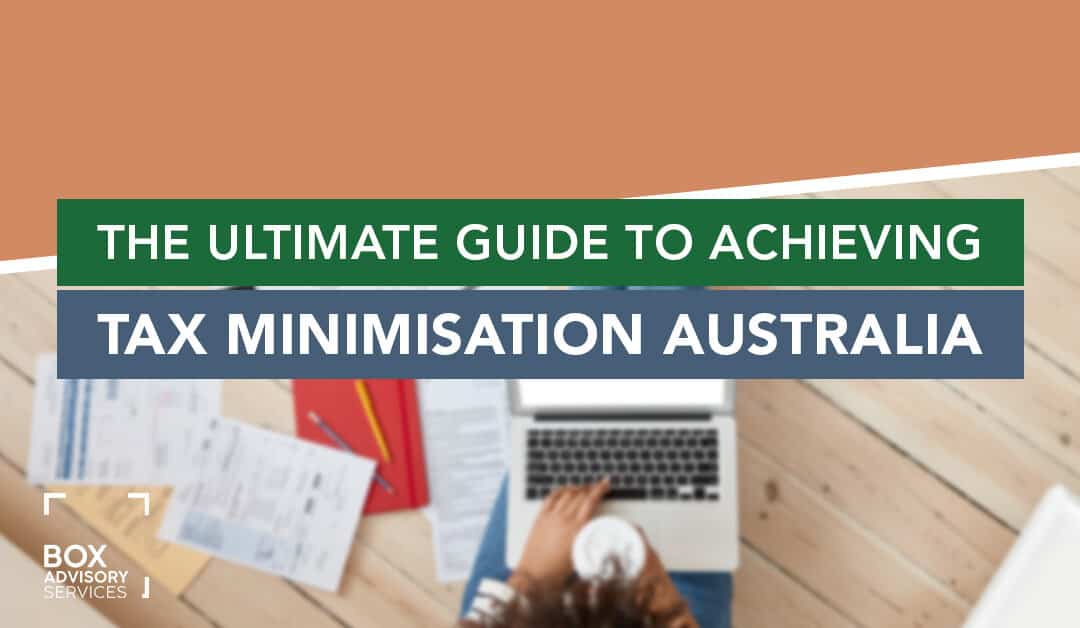
BY
|
The Ultimate Guide to Achieving Tax Minimisation Australia
Your small business can save considerable amounts of tax each year by implementing effective tax minimisation strategies.
Let’s be honest – no small business wants to pay more tax than they have to.
Fortunately, there are a few ways you can ensure that you don’t pay more tax than you need to.
So, we’ve decided to put together this ultimate guide to achieving tax minimisation in Australia. We’ll share a few tips to ensure that your small business is taking advantage of the various tax concessions and strategies available to minimise your tax.
Using the Instant Asset Write-Off to Reduce Taxable Income
A key way to minimise your small business tax is to take advantage of the various tax concessions that the Australian Tax Office (ATO) offers to small businesses.
In terms of the instant asset write-off rule, your small business is entitled to claim an immediate deduction for the cost of the business-use portion of an asset in the same year that you first used it or installed it.
You can claim this immediate deduction for various new second-hand assets, provided that the cost of each asset is less than the relevant threshold.
Generally, the ATO amends this threshold, so it often changes every couple of years, for example:
| From 7.30 pm (AEST) on 12 May 2015 until 28 January 2019 | Small business entities could immediately deduct the business portion of most depreciating assets costing less than $20,000 each (the instant asset write-off threshold). |
| From 29 January 2019 until before 7.30pm (AEDT) 2 April 2019 | Small business entities could immediately deduct the business portion of most depreciating assets costing less than $25,000 each (the instant asset write-off threshold). |
| From 7.30pm (AEDT) on 2 April 2019 until 11 March 2020 | Small business entities could immediately deduct the business portion of most depreciating assets costing less than $30,000 each (the instant asset write-off threshold). |
| From 12 March 2020 until 30 June 2020 | Small business entities could immediately deduct the business portion of most depreciating assets costing less than $150,000 each (the instant asset write-off threshold). |
However, to soften the hard knock on our economy due to the global coronavirus pandemic, the ATO significantly amended the Instant Asset Write-Off Scheme by allowing businesses with an aggregated turnover of $5 billion to claim an immediate deduction for their depreciating assets.
What’s more, the asset’s total cost can be claimed, so there is no threshold amount.
From 7:30 pm on 6 October 2020 until 30 June 2022, the limitless instant asset write-off will override all previous Instant Asset Write-Off Schemes.
Claim All Your Small Business Tax Deductions to Minimise Tax
You can claim a deduction for most of the cost your small business occurs through its day-to-day operations.
Missing out on claiming these deductions could mean that you’re paying far more tax to the ATO than you need to be.
You should be able to claim the following expenses:
- advertising;
- business travel;
- office expenses
- rent and lease expenses
- equipment and software expenses
- insurance
- motor vehicle expenses;
- fringe benefits;
- working from home deductions, and among other things
- salaries and wages.
Note, however, you can only claim expenses that relate to your business generating income. And remember to keep all your records to support your claims.
Increase Superannuation Contributions for Tax Minimisation Australia
Not only will this tax minimisation strategy reduce the amount of small business tax you’ll have to pay, but it’s also a smart investment for your future.
You can contribute up to $25,000 (including the compulsory 9.5%) into your superannuation fund each financial year. This will be increasing to $27,500 from 1 July 2021.
By contributing more money to your super fund, you’ll reduce your business’s taxable income and reduce the amount of tax you’re liable to pay on that contribution.
The contribution will generally be taxed in the fund at a rate of 15% instead of your marginal tax rate, which could be up to 47% (including medicare levy).
It’s worth noting that you should make all contributions to the fund before the end of the financial year to take advantage of this tax minimisation strategy.
Write Off Bad Debts for Tax Savings
If you cannot retrieve debt from one or more of your customer’s accounts, you could possibly write these debts off and reduce your taxable income.
Bad debts can range from customer credit accounts and customer loans to employee loans.
By reducing your assessable income, you can effectively reduce your tax that you may have to pay.
However, the ATO proposes strict criteria for writing off bad debts.
You’ll also need to prove to the ATO that you made substantial but unsuccessful attempts to recover the debt before the end of the financial year, and there was just no chance of you recovering it.
To do this, you’ll have to:
- communicate to the debtor about their outstanding payments (and keep all records of the communication);
- send follow-up reminder notices;
- determine their financial position and whether they are likely to pay their debt; and
- taken all necessary debt recovery steps to retrieve the debt.
Effective Tax Planning: Pay Expenses in Advance
Suppose your small business has a good cash flow. If that is the case, you may want to consider prepaying some of your business expenses to minimise your tax liability.
Not only will you reduce your assessable income, but also be entitled to claim an immediate tax deduction for prepaying expenses like:
- business travel;
- marketing expenses;
- lease payments;
- rent payments;
- accounting fees;
- marketing fees;
- IT services;
- business-related subscriptions; and
- insurance premiums.
However, you should note that you can only prepay these expenses up to 12 months in advance.
Key Takeaways
The ATO offers various tax concessions that all small businesses should take advantage of to achieve tax minimisation.
Without effective tax planning, your company could end up paying thousands of unnecessary dollars in tax.
Perhaps you should consider adding another element to your tax planning: seeking professional advice. In most cases, getting provisional advice will not only save you time, but they will also be able to guide you on how to reduce taxable income.
At Box Advisory Services, our small team of experienced accountants can help you navigate through tax minimisation and help you prepare your annual tax return.
To find out how we can help you, book a free consultation with us to assess your small business situation.



